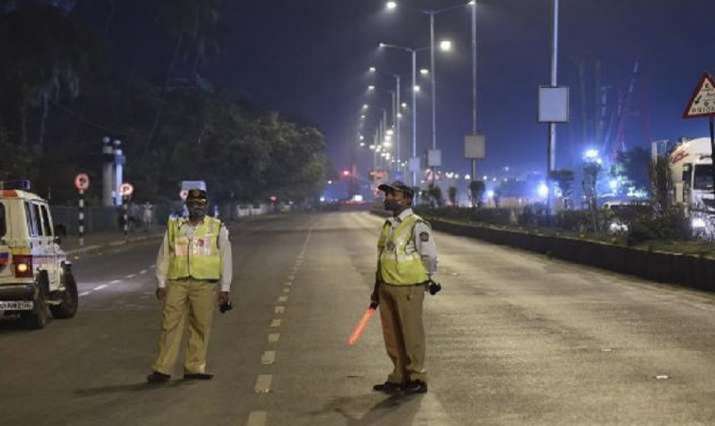Bengaluru, Dec 28: "Night Curfew" announced by the Karnataka government for ten days as part of its containment measures to control further COVID spread, has come into effect from 10 PM across the state on Tuesday.
The night curfew is from 10 PM to 5 AM every day till January 7 morning, during which no activities will be allowed.
There has been a steady increase in the number of COVID-19 clusters in the state and in the number of Omicron variant's infections, with its tally in Karnataka now standing at 38.
The government has said that it is imposing additional containment measures proactively to break the chain of transmission in the state.
Stating that the night curfew has been decided following experts' advice, Home Minister Araga Jnanendra in a statement today has appealed to public to cooperate with authorities and police, by following the rules, for larger public good.
As part of containment measures, the government also banned all New Year parties and gatherings in public places, and places like eateries, hotels, pubs, clubs and restaurants have been asked to operate with 50 per cent of their seating capacity from December 30 to January 2.
According to the government order during night curfew, the movement of individuals shall remain strictly prohibited, except for essential activities, patients and their attendants, industries and companies requiring night operations, vehicles carrying goods, bus, trains, metro, air travel, home delivery and e-commerce operations, among others.
Employees of companies working during night shifts can move around with a valid ID card. Movement of passengers for the sake of travel through bus, trains and air will be allowed on displaying valid travel documents or tickets.
The order also states that only essential staff or employees of IT and ITeS companies shall work from the office, while the rest will work from home.
Let the Truth be known. If you read VB and like VB, please be a VB Supporter and Help us deliver the Truth to one and all.
Panaji (PTI): As part of a crackdown against tourist establishments violating laws and safety norms in the aftermath of the Arpora fire tragedy, Goa authorities on Saturday sealed a renowned club at Vagator and revoked the fire department NOC of another club.
Cafe CO2 Goa, located on a cliff overlooking the Arabian Sea at Vagator beach in North Goa, was sealed. The move came two days after Goya Club, also in Vagator, was shut down for alleged violations of rules.
Elsewhere, campaigning for local body polls, AAP leader Arvind Kejriwal said the fire incident at Birch by Romeo Lane nightclub at Arpora, which claimed 25 lives on December 6, happened because the BJP government in the state was corrupt.
An inspection of Cafe CO2 Goa by a state government-appointed team revealed that the establishment, with a seating capacity of 250, did not possess a no-objection certificate (NOC) of the Fire and Emergency Services Department. The club, which sits atop Ozrant Cliff, also did not have structural stability, the team found.
The Fire and Emergency Services on Saturday also revoked the NOC issued to Diaz Pool Club and Bar at Anjuna as the fire extinguishers installed in the establishment were found to be inadequate, said divisional fire officer Shripad Gawas.
A notice was issued to Nitin Wadhwa, the partner of the club, he said in the order.
Campaigning at Chimbel village near Panaji in support of his party's Zilla Panchayat election candidate, Aam Aadmi Party leader Kejriwal said the nightclub fire at Arpora happened because of the "corruption of the Pramod Sawant-led state government."
"Why this fire incident happened? I read in the newspapers that the nightclub had no occupancy certificate, no building licence, no excise licence, no construction licence or trade licence. The entire club was illegal but still it was going on," he said.
"How could it go on? Couldn't Pramod Sawant or anyone else see it? I was told that hafta (bribe) was being paid," the former Delhi chief minister said.
A person can not work without bribing officials in the coastal state, Kejriwal said, alleging that officers, MLAs and even ministers are accepting bribes.





